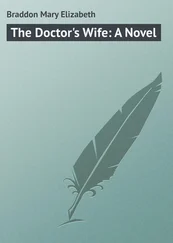Mary Braddon - Mohawks - A Novel. Volume 1 of 3
Здесь есть возможность читать онлайн «Mary Braddon - Mohawks - A Novel. Volume 1 of 3» — ознакомительный отрывок электронной книги совершенно бесплатно, а после прочтения отрывка купить полную версию. В некоторых случаях можно слушать аудио, скачать через торрент в формате fb2 и присутствует краткое содержание. Жанр: foreign_prose, на английском языке. Описание произведения, (предисловие) а так же отзывы посетителей доступны на портале библиотеки ЛибКат.
- Название:Mohawks: A Novel. Volume 1 of 3
- Автор:
- Жанр:
- Год:неизвестен
- ISBN:нет данных
- Рейтинг книги:5 / 5. Голосов: 1
-
Избранное:Добавить в избранное
- Отзывы:
-
Ваша оценка:
- 100
- 1
- 2
- 3
- 4
- 5
Mohawks: A Novel. Volume 1 of 3: краткое содержание, описание и аннотация
Предлагаем к чтению аннотацию, описание, краткое содержание или предисловие (зависит от того, что написал сам автор книги «Mohawks: A Novel. Volume 1 of 3»). Если вы не нашли необходимую информацию о книге — напишите в комментариях, мы постараемся отыскать её.
Mohawks: A Novel. Volume 1 of 3 — читать онлайн ознакомительный отрывок
Ниже представлен текст книги, разбитый по страницам. Система сохранения места последней прочитанной страницы, позволяет с удобством читать онлайн бесплатно книгу «Mohawks: A Novel. Volume 1 of 3», без необходимости каждый раз заново искать на чём Вы остановились. Поставьте закладку, и сможете в любой момент перейти на страницу, на которой закончили чтение.
Интервал:
Закладка:
"It may have been her mother's name," said the Squire, and that was all, though he might have said more had he pleased.
Among those pamphlets and political manuscripts he had found three private letters, which to his mind suggested a domestic history, and which served to assure him that his daughter's companion was of gentle birth. He desired to know no more, and he had no intention of inquiring into her antecedents.
The wanderer had been lying in his nameless grave for a little over three years, and his orphan daughter had thriven apace in her new home. The two children had but rarely passed the gates of the park during those years, but they had been utterly happy together in that wooded wilderness, too young to languish for change of scene, renewing every day the childish pleasures of yesterday. They had not yet emerged from the fairyland of play into the cold arid world of work and reality. They played together all day long on the sunlit grass or under the dappled shadows of the trees in spring, summer, and autumn; in winter making a little paradise for themselves in the day nursery before the cheerful fire, into which they used to peer sometimes, with dilated eyes, seeing gnomes and fairies, and St. George and his dragon, and all the Seven Champions of Christendom, in the burning logs. The shining brass fender seemed to them like a glittering golden gate shutting in fairyland.
How did they know anything of St. George and his dragon, King Arthur, Melusine, and the gnomes and the fairies, at this tender age, when they hardly knew their letters, and certainly could not read these dear old stories for themselves? Easily explained. They had a living book in which they read every evening, and the book was Bridget. Mistress Bridget had more imagination than most of her class, and had spent her superfluous cash with the pedlar, in whose pack there was generally a department for light literature – curious paper-covered books, printed on coarsest paper, and with the roughest and rudest of illustrations; but the Seven Champions and all the old fairy tales were to be found among these volumes, and Bridget had gradually possessed herself of the whole realm of Robin Goodfellow and the fairies.
In the evening, when the stealthy shadows came creeping over the window, and shutting out the leafy wilderness beyond, the two children used to clamber on to Bridget's knee and ask for stories, and Bridget related those old legends with the uttermost enjoyment. That twilight interval before candles and bedtime was the pleasantest hour in her day.
So the children were happy, having, as it seemed, but one friend in the world, in the person of buxom Bridget. Mrs. Barbara Layburne but rarely condescended to enter the nurseries, and looked askant at the children if she happened to meet them in the corridors or hall. She did not even pretend to be fond of her master's daughter, and for the alien she had nothing but contempt. The Squire himself was at best an indifferent father. He seemed quite satisfied to hear that his daughter was well and happy, and seldom put himself out of the way to see her. Sometimes, riding across the park, he would come upon the two children in their play, and would pull up his horse and stop for a few minutes to watch them. There could not be a prettier picture than the two golden-haired children, in their white frocks and blue sashes, chasing each other across the sunlit sward, or squatted side by side in the deep pasture grass, making daisy-chains or buttercup-balls. Belinda looked the stronger of the two, the Squire thought. He knew her by her somewhat darker hair and rosier cheeks. His own motherless child had always a delicate air, though she had never had any serious illness.
It was late in the October of that third year when the children's peaceful days came to an end, like a tale that is told, never hereafter to be any more than a sad sweet memory of love and happiness that had been and was not.
The twilight was earlier than usual on that October evening, and night came up with a great threatening cloud like the outspread wing of a bad angel. Mrs. Barbara Layburne stood at the hall-door watching that lowering sky, and listening to the sough of the south-west wind, and thinking of that night just thirteen years ago – that night of tempest and gloom upon which she had first seen yonder elms and oaks in all their garnered might of foregone centuries, standing stern and strong against the threatening wrack. She thought of her life as it had been before that night, of her life as it had been since.
"Would anybody in London – those who knew me in my glory – believe that I would endure such a long slow martyrdom, a death in life?" she asked herself. "Well, perhaps they would believe, if they could fathom my motive."
The sound of footsteps startled her. Peering into the darkness of the long avenue, she saw a lad running under the trees, sheltering himself as best he might from the driving rain. She watched him as he came towards the house, and hailed him as he drew near. He was the son of the old gardener who lived at the lodge.
"What is the matter?" she asked.
"There is a man at the lodge very ill – dying, mother thinks – and he sent this for you, ma'am, and I was to give it into your own hands."
He handed her a scrap of paper, folded but not sealed. It was scrawled over in pencil, with a tremulous hand.
"Come to me at once, if you want to see me alive. – Roderick."
That was all.
"Is he tall, with dark eyes and hair?" she asked.
"Yes. You'd better come at once if you know anything about him. He's mortal bad. And mother said you'd best bring some brandy."
Barbara Layburne went hastily to the store-room, where everything was kept sternly under lock and key. Half the business of her life was to unlock and lock those presses and store-closets, doling out everything to the submissive cook, who still contrived somehow to have her pinch out of this and that. Barbara filled a small bottle with brandy, fetched her cloak and hood, and then went back to the hall, where the boy was waiting.
She went along the avenue, muffled in her gray cloth cloak, a ghostlike figure, the boy following her as fast as his legs would carry him. He declared afterwards that he had never seen any one walk so fast as Mrs. Layburne walked that stormy night, though the wind and rain were beating against her face and figure all the way.
There was a light burning dimly in the lodge as they drew near. The door was open, and the old gardener was standing on the threshold watching for them.
"Is he – dead?" gasped Barbara.
"No; but his breath is short and thick, just as if he was near his end, poor wretch. He ain't anybody belonging to you , is he, madam?"
"Not he," answered Barbara promptly; "but I know something about him. He's the son of an old servant who lived with me in my prosperous days. Where is he?"
"In the kitchen. He was shivering, so the missus thought he'd be better by the fire be-like."
The ground floor of the lodge consisted of two rooms, parlour and kitchen. Barbara went to the kitchen, which was at the back, the common living-room of the family. The parlour was for ornament and state – temple and shrine for the family Bible and the family samplers, laborious works of art which adorned the walls.
The sick man was lying in front of the fire, with an old potato-sack between him and the flagged floor. Barbara knelt beside him, and looked into his face, half in the red light of the fire, half in the yellow flare of the tallow candle.
His eyes were glassy and dim, his cheeks were flushed, his breath laboured and rattled as it came and went. Barbara Layburne knew the symptoms well enough. It was gaol fever – a low form of typhus. That tainted breath meant infection, and the gardener's cottage swarmed with children. He must be got away from there at once, unless they were all to die. Typhus in those days was always master of the field where he had once set up his standard.
Читать дальшеИнтервал:
Закладка:
Похожие книги на «Mohawks: A Novel. Volume 1 of 3»
Представляем Вашему вниманию похожие книги на «Mohawks: A Novel. Volume 1 of 3» списком для выбора. Мы отобрали схожую по названию и смыслу литературу в надежде предоставить читателям больше вариантов отыскать новые, интересные, ещё непрочитанные произведения.
Обсуждение, отзывы о книге «Mohawks: A Novel. Volume 1 of 3» и просто собственные мнения читателей. Оставьте ваши комментарии, напишите, что Вы думаете о произведении, его смысле или главных героях. Укажите что конкретно понравилось, а что нет, и почему Вы так считаете.












